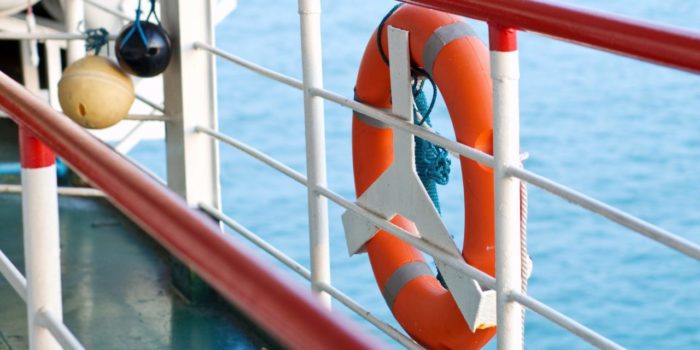The UK P&I Clubs looks at some issues which the current unimodal Conventions give rise to. In this discussion, the Club is focussing only on the maritime Conventions, by discussing conflict of laws enabled by Article 2 CMR, and lack of certainty.
Conflict of laws enabled by Article 2 CMR
Instead of causing a conflict situation between the Hague-Visby Rules and the CMR, Article 2 of the CMR actually seeks to restrict the potential for conflict.
For example, the hypothetical scenario of a multimodal transport, which is ‘mode on mode and it is established that the loss, damage or delay to goods took place during the road stage. In such cases, the CMR is applied. However, if the loss, damage or delay happened during the sea stage, then, despite the fact that the goods have not been unloaded from the vehicle, the liability of the road carrier to the consignee will be governed not by the CMR, but by the law appropriate to the sea stage, the UK Club informs.
In addition, in situations which regard events that could only have taken place ‘in the course of and by reason of that other means of transport’, and the other means of transport are covered by ‘conditions prescribed by law’, the CMR grants the other carriage regime precedence regarding matters about the liability of the multimodal transport operator.
[smlsubform prepend=”GET THE SAFETY4SEA IN YOUR INBOX!” showname=false emailtxt=”” emailholder=”Enter your email address” showsubmit=true submittxt=”Submit” jsthanks=false thankyou=”Thank you for subscribing to our mailing list”]
What is more, there is the possibility of a multimodal transport contract where the CMR applies to the first leg and the Hamburg Rules to the second leg. A possible conflict could happen as Article 20 of the Hamburg Rules derives from the CMR in establishing a time bar period of two years for the consignee to bring a claim against the carrier.
If such a conflict arises, Article 25(5) of the Hamburg Rules may help. Article 25(5), which deals with potential uniform transport law conflicts, determines that nothing included in the Hamburg Rules prevents a Contracting State from applying any other international convention which was already applied on 30 March 1980 and which applies mandatorily to contracts of carriage of goods mainly by a mode of transport other than transport by sea.
As a result, Article 25(5) of the Hamburg Rules resolves any possible conflict between Article 2 of the CMR and the Hamburg Rules, by giving the CMR rules ‘rights of way’.
Lack of certainty
Today, in cases of loss, damage or delay to goods during international multimodal transport, cargo claims are brought by cargo interests against the MTO under multimodal transport documents like Multidoc 95, Combiconbill and the FIATA Multimodal Transport Bill of Lading.
Certain multimodal carriers and non-vehicle owning carriers have adopted their own in-house standard form negotiable and non-negotiable bills of lading. Non-negotiable transport documents specifically devised for multimodal transport include BIMCO’s MULTIWAYBILL and COMBICONWAYBILL.
These documents provide for a more or less complete contractual liability regime with clear rules on the basis of liability, available defences at different stages of the voyage, applicable limitation periods and time bars. Nevertheless, it should be noted that every bill of lading devises its regime differently, according to a concept known as the limited network liability system.
The aim is to avoid insofar as possible, interference with mandatory regimes applicable to unimodal segments of the adventure. The UK Club says that this means that the result of every single claim is based on the wording of the contract and the specific circumstances of the case. In some cases, more than one Convention may apply to the same claim, yet under the current system, each Convention proceeds without reference to the other.
Is a multimodal transport document a bill of lading or similar document of title making it subject to the Hague-Visby Rules?
A multimodal transport document will in many cases be governed at different stages by different legal requirements, based on the conventions governing each mode because there is hardly any national and no international legislation regarding this type of document.
According to the Club, a multimodal transport document such as a combined transport bill of lading will be viewed as a ‘received for shipment’ bill of lading. There is no clear legal authority providing that this document can be a document of title. A multimodal bill of lading may be regarded as a negotiable transport document only if it is issued ‘to order’ and the last leg of the carriage is a sea shipment.
Another argument that a combined transport bill of lading does not generally amount to a document of title, is based on the fact that the document may be issued by someone other than the actual sea carrier.
It is doubtful whether this document can confer constructive possession in the goods to which it refers when the contractual carrier has never taken the goods into its physical possession
However, it is clear that what matters is not the physical reception of the goods by the carrier, but the performing carrier’s contractual capacity to control delivery.































































